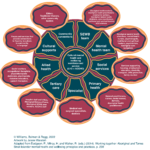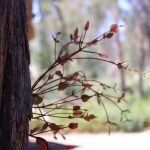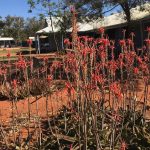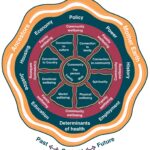
June 2023
Download Factors that encourage, or inhibit, Aboriginal and Torres Strait Islander people to work in health PDF
Many health organisations would like to grow their Aboriginal and Torres Strait Islander workforce. They are in competition with banks, airlines, mining companies, universities and others, all with the same goal. For health organisations to increase the number of Aboriginal and Torres Strait Islander people working with them, they will have to make the employment very attractive.
Yulang has interviewed about 100 Aboriginal people about their workplace experiences across a number of projects (Williams, Ragg & Manton 2019; Williams & Ragg 2019; Williams & Ragg 2022; Williams, Young, Angeles, Plater, O’Leary & Ragg 2022), and has also reviewed the literature. We present our findings here in a binary fashion – important issues can either encourage workforce growth, or can inhibit it.
Enablers in the workplace include a culturally safe workplace, teamwork and collaboration, peer support, access to clinical and cultural support and opportunities for professional development.
Barriers in the workplace from the literature include a lack of cultural safety, racism, a heavy cultural load and the low representation of Aboriginal people in health at high pay grades.
The professions themselves, through their peak bodies, have a strong influence on the Aboriginal health workforce. They can have a positive influence by shaping the curricula at universities, by making Aboriginal health professionals visible, and more. Only a small number of professions do this or have Aboriginal people involved.
Enablers in the profession include reconciliation action plans, support for diversity, support of Aboriginal peak bodies by the Commonwealth Government, and partnerships between mainstream and Aboriginal organisations. Table 1 provides a summary.
Table 1: Enablers and inhibitors in the workforce and the sector
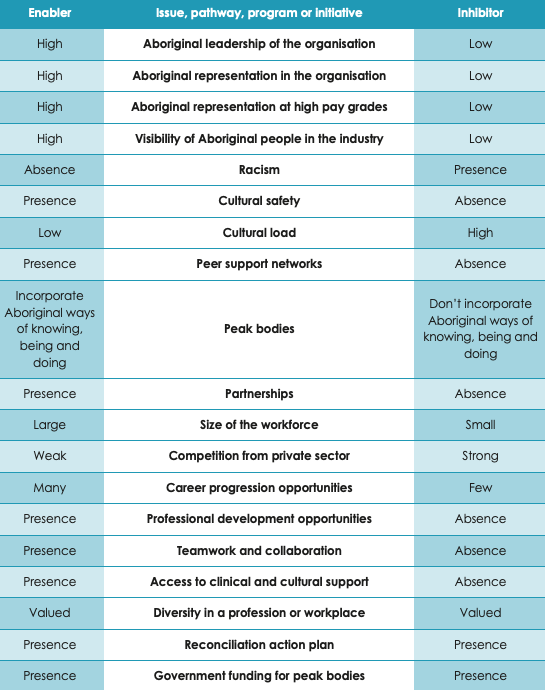
Recommended citation
Williams, M., & Ragg, M. (2023). Factors that encourage, or inhibit, Aboriginal and Torres Strait Islander people to work in health. Yulang Indigenous Evaluation. https://yulang.com.au/starburst-indigenous-evaluations/workforce-enablers/




